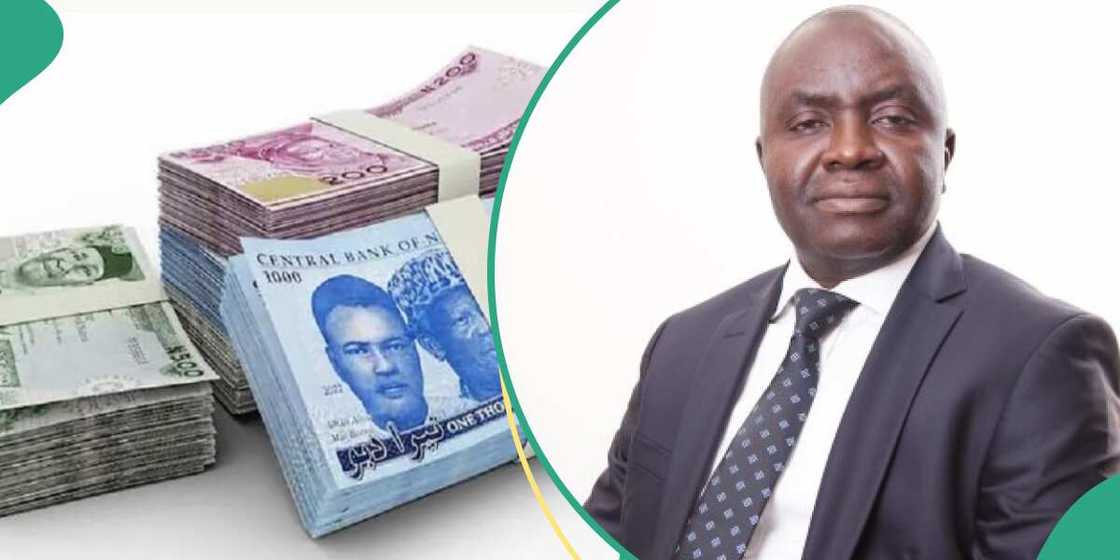Expert Speaks on Solutions to Naira Volatility as Local Currency Loses Ground to Dollar
- An economist, Muda Yusuf, wants the government to limit market volatility in the forex rate to avoid speculation
- He said this in response to the recent upward and downward fluctuation of naira in relation to the US dollar
- He believes that as the economic team moves forward with the reforms, they will keep learning
PAY ATTENTION: The 2024 Business Leaders Awards Present Entrepreneurs that Change Nigeria for the Better. Check out their Stories!
Legit.ng journalist Zainab Iwayemi has over three years of experience covering the Economy, Technology, and Capital Market.
Muda Yusuf, an economist, has advocated for reducing market volatility. In his view, volatility is used to encourage speculation and fuel unpredictability.

Source: UGC
Yusuf said this while responding to the volatility in the foreign exchange market, which has caused the Nigerian naira's value to fluctuate upward and downward in relation to the US dollar.
After falling to almost 1,900 to the dollar, the naira gained strength and was recently named the world's best-performing currency, trading at about 1,100.
Meanwhile, recent data from FMDQ has shown that the naira continued to depreciate against the dollar at the official foreign exchange window, closing at N1,339.23/$1 on Friday, April 26.
Speaking about the naira volatility on Channels Television's Politics Today on Friday, Yusuf stated that addressing the problem of foreign exchange market volatility is imperative.
He said:
“This is not now about whether the naira is exchanging for 2000 or 1500, 1,100, no; stability and minimisation of volatility are essential. So, as we progress with these reforms and address all these gaps in the foreign exchange market space, we should also put in place a framework to ensure that we minimise volatility in the foreign exchange market.
“Persistent volatility can lead to a loss of confidence, and once confidence begins to be eroded, it further fuels speculation, creates uncertainty, makes the environment unpredictable, and is not good for investment.”
Former Director General of the Lagos Chamber of Commerce Yusuf stated that President Bola Tinubu's administration's economic reform is still being worked on.
He said they would keep learning as the economic team moved forward with the reforms.
He acknowledged the numerous defects present in the Nigerian foreign currency market, noting that while the central bank has addressed some of these issues, more work remains to be done to attain greater exchange rate stability.
Charles Abuede, a financial analyst said that more liquidity injection through increasing crude oil production needs to be addressed to ensure stability.
He added,
"When the CBN takes seriously the mandate of liquidity injection into the system to ensure fx stability and availability, we will see positive movement and gradual appreciation in the naira value."
CBN names factors that drive the dollar
Legit.ng reported that in the nine months from January to September 2023, the Central Bank of Nigeria's dollar supply for overseas medical and educational costs increased by 49.22% to $1.81 billion.
According to CBN data, Nigeria spent somewhat more on international education and health-related concerns abroad in 2023—$1.81 billion compared to $1.76 billion spent at the same time in 2022.
The amount allocated for these two charges was insignificant compared to the $2.49 billion available during the same period in 2021.
PAY ATTENTION: Donate to Legit Charity on Patreon. Your support matters!
Source: Legit.ng





